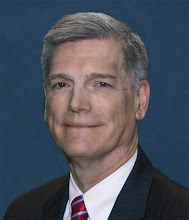 |
| Charles Casto |
The latest addition to our understanding of the lessons in leadership from the Fukushima experience of 2011 comes from
Charles Casto. Mr. Casto spent almost a year as the Nuclear Regulatory Commission's senior liaison in Japan after the Fukushima accident. This role gave him an extraordinary opportunity to learn from the people involved in the accident response. Mr. Casto recounts many of his insights in an
article in the Harvard Business Review, July-August 2014 issue, and in an HBR
podcast accompanying the article.
 |
| Naohiro Masuda |
The article focuses on the crisis leadership of
Naohiro Masuda, superintendent of the Fukushima
Daini site, and his contribution to saving Daini from the reactor meltdowns that occurred at the sister plant, Fukushima
Daiichi. Mr. Casto and co-authors Ranjay Gulati and Charlotte Krontiris, highlight Masuda-san's technique for "sense-making" in the midst of uncertainty. The article specially highlights Masuda-san's openness with critical information on a whiteboard, giving employees raw data from which to draw their own meaning, instead of giving them only
his interpretation (meaning) of that data.
Nuclear Notes has previously featured posts by U.S. chief nuclear officers
Maria Korsnick and
Ed Halpin, who visited Fukushima in 2013 and saw firsthand the aftermath of the earthquake, tsunami and meltdowns at Fukushima Daiichi. They recognized, as does Mr. Casto, the difference that leadership makes in adapting to unanticipated situations fraught with great uncertainty. As they and
others have highlighted, adaptability is a key to the industry's
FLEX strategy, adaptability derived from preparation, training and leadership.



Comments